This common nighttime routine ‘mistake’ may actually help you fall asleep faster, says expert
We've often been told to avoid this habit before bed, but it may actually help you fall asleep
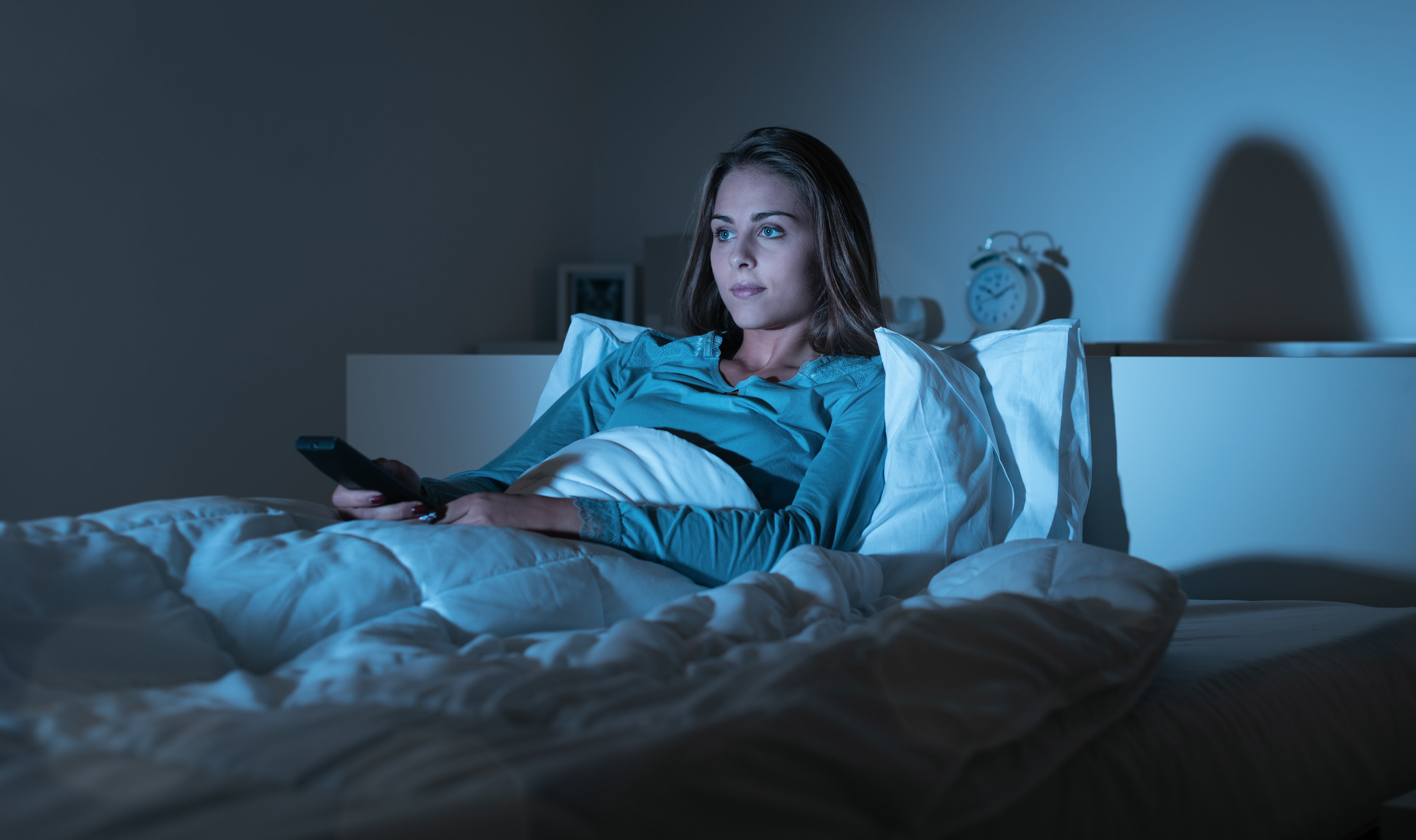
If you want to fall asleep fast, we always recommend making changes to your nighttime routine.
What we do during bedtime can have a big impact on sleep, but it can be difficult to know what we should and shouldn't be doing before lights out.
There's a lot of contradictory information out there about good sleep hygiene. So, is there any sleep advice that we shouldn't have to take too seriously?
We recently spoke to Hannah Shore, head of sleep science at Mattress Online, to ask her if any habits that are considered "bedtime mistakes" can actually be beneficial for sleep. Here's what she had to say...
The bedtime routine ‘mistake’ that may help you fall asleep...
We've always been told to limit screen time before bed, as studies have shown that the blue light emitted from screens can suppress the production of melatonin (the sleepy hormone) and make it harder to fall asleep.
This means that watching TV before bed is considered a huge bedtime mistake. However, is watching TV in bed that bad for your sleep?
Shore sees this so-called bad nighttime habit as a way to help her unwind before bed. She swears by watching a familiar, comforting TV show when she wants to fall asleep or get back to sleep after a nighttime awakening.
Sign up to get the BEST of Tom's Guide direct to your inbox.
Get instant access to breaking news, the hottest reviews, great deals and helpful tips.
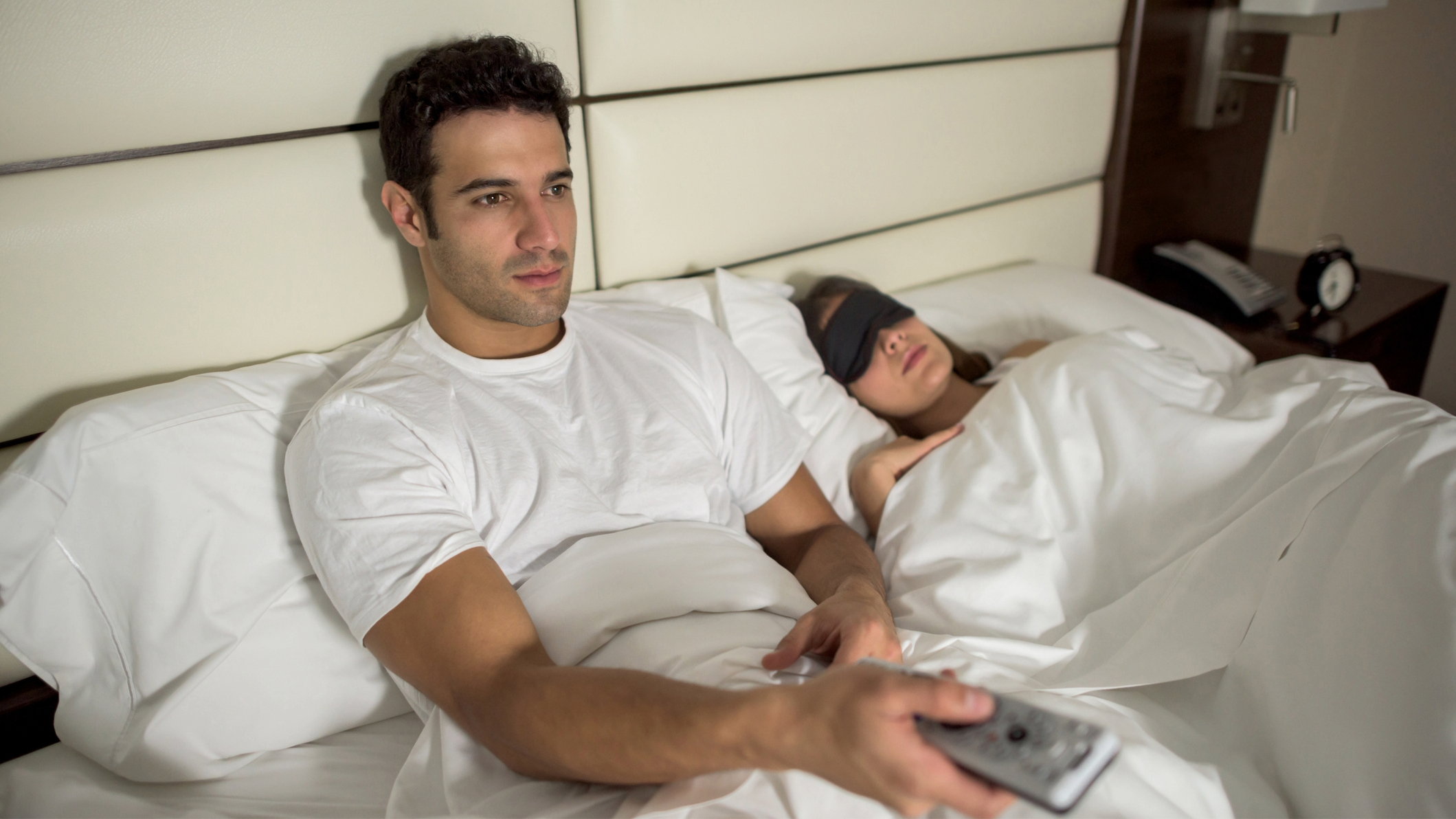
"It’s a little controversial, but I watch reruns of TV shows that I have already seen, nothing too exciting," she confesses.
"It might seem crazy but chances are you could lose hours tossing and turning, so instead try doing whatever calms you down for 30 minutes. It could speed up that getting back to sleep process.”
In fact, a lot of studies are now saying a TV's blue light emitting isn't as disruptive to our sleep as we once thought, only delaying sleep by approximately three minutes.
Plus, research shows that watching familiar shows can give our brains a rest and help us to unwind after a long day.
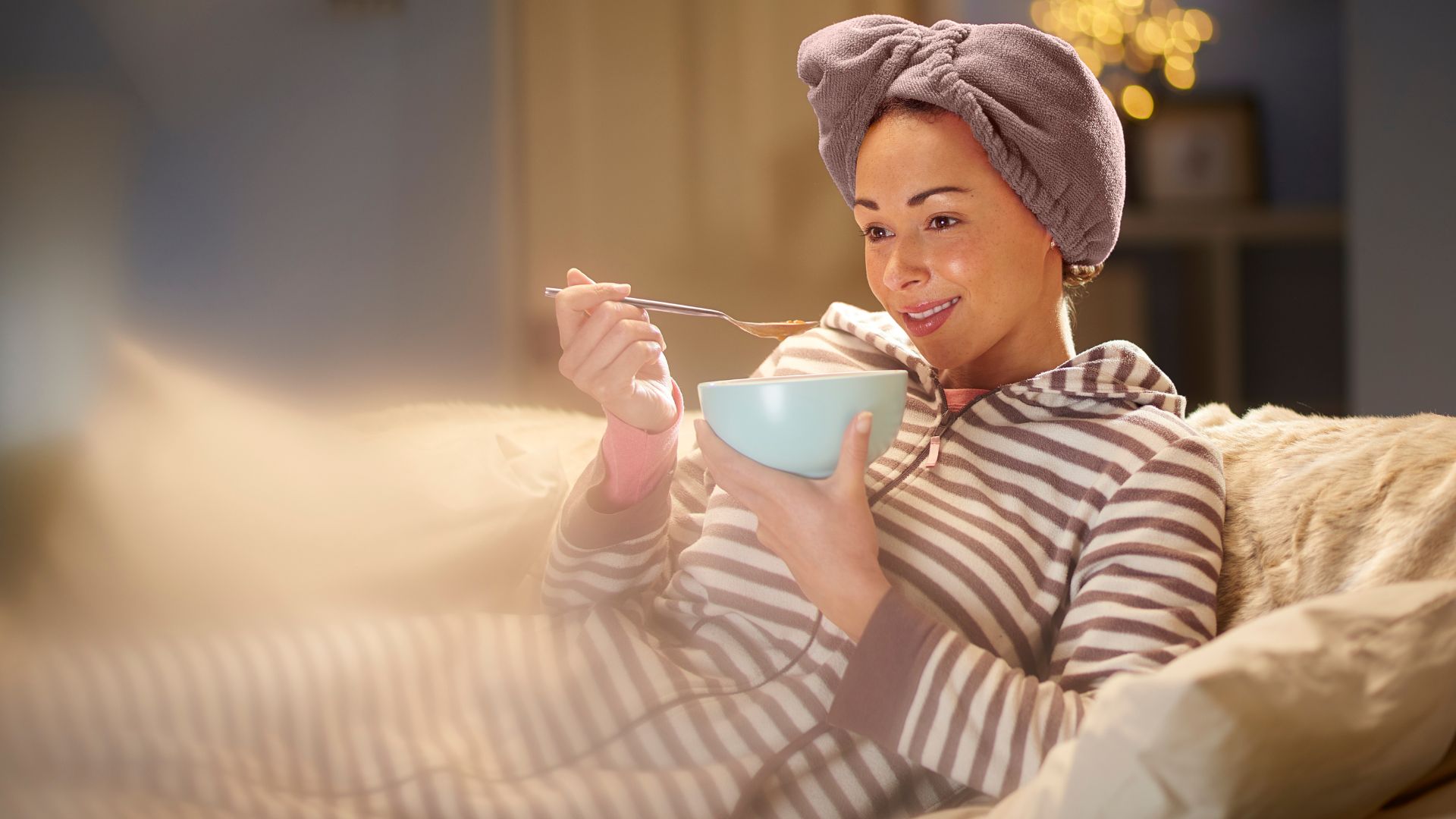
So, if you're going to watch TV before bed, watch something familiar and comforting, rather than something new that requires a lot of thinking and plot-following.
Also, make sure your pre-bedtime viewing doesn't turn into a binge-watch session by setting a timer to make the episode you're watching the final one of the night.
...and the 3 recommended bedtime habits that may not help you fall asleep
1. Reading a book before bed
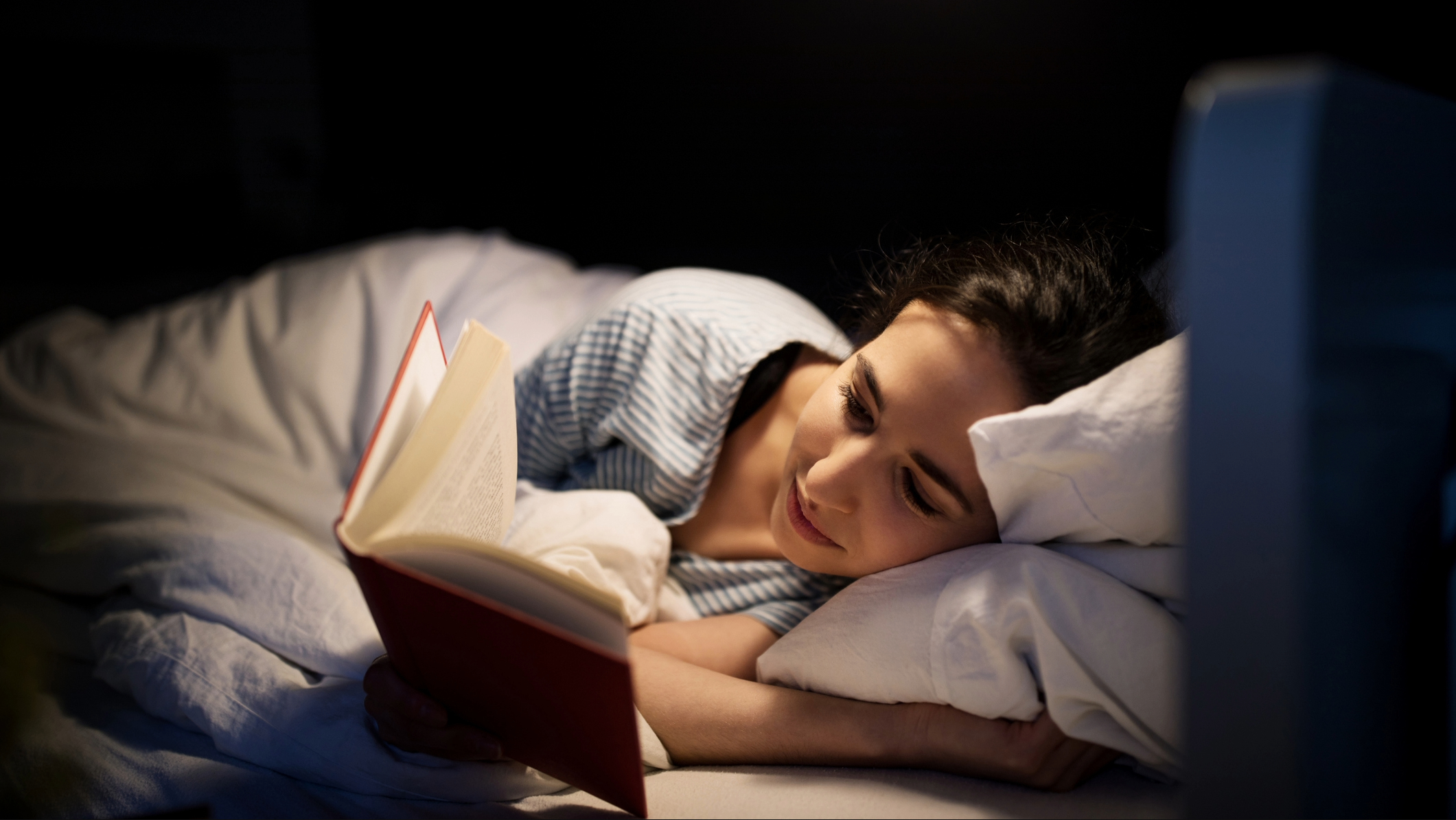
Switching our pre-bedtime scrolling for pre-bedtime reading is often prescribed by sleep experts. But Shore says that reading a book before bed isn't always effective.
“Simply put, avoid anything that is going to wake you up further and engages your brain," she advises.
"Some people find reading helps to calm them down, others become so engrossed in a book that they want to read just another page…or another chapter."
2. Sipping sleepy tea
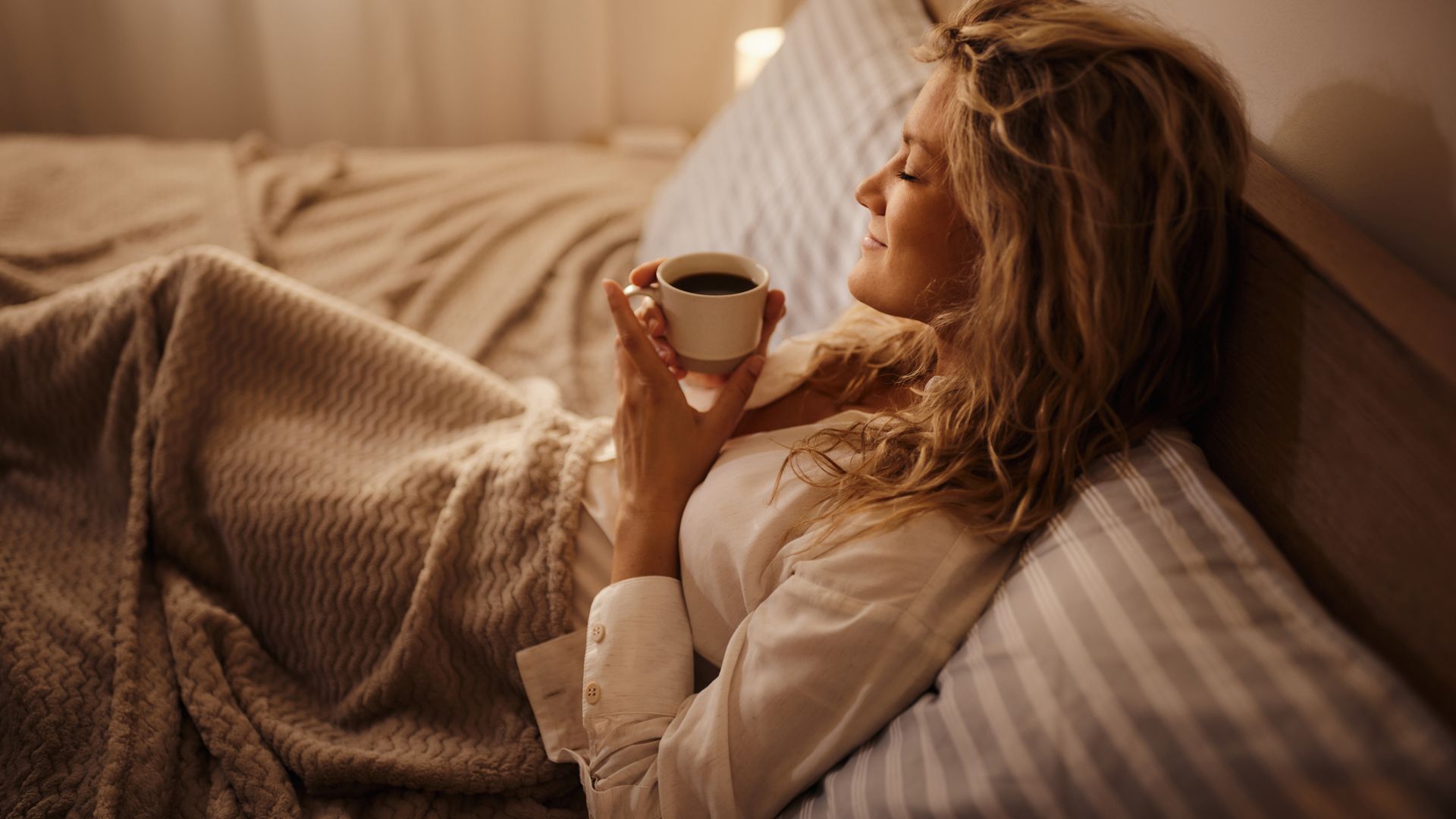
Browse the hot drinks section at the supermarket and you'll likely see a variety of teas promising to help you fall asleep faster with sleep-inducing ingredients such as chamomile, lavender, and valerian root.
While it's true that chamomile and lavender tea are the some of the best teas to drink for better sleep, that doesn't mean you should be sipping them right before bed — especially if you experience nocturia.
Instead, follow the 10-3-2-1 rule and drink your sleepy tea or sleepy girl mocktail three hours before bed at the very latest.
3. Having a shower or bath
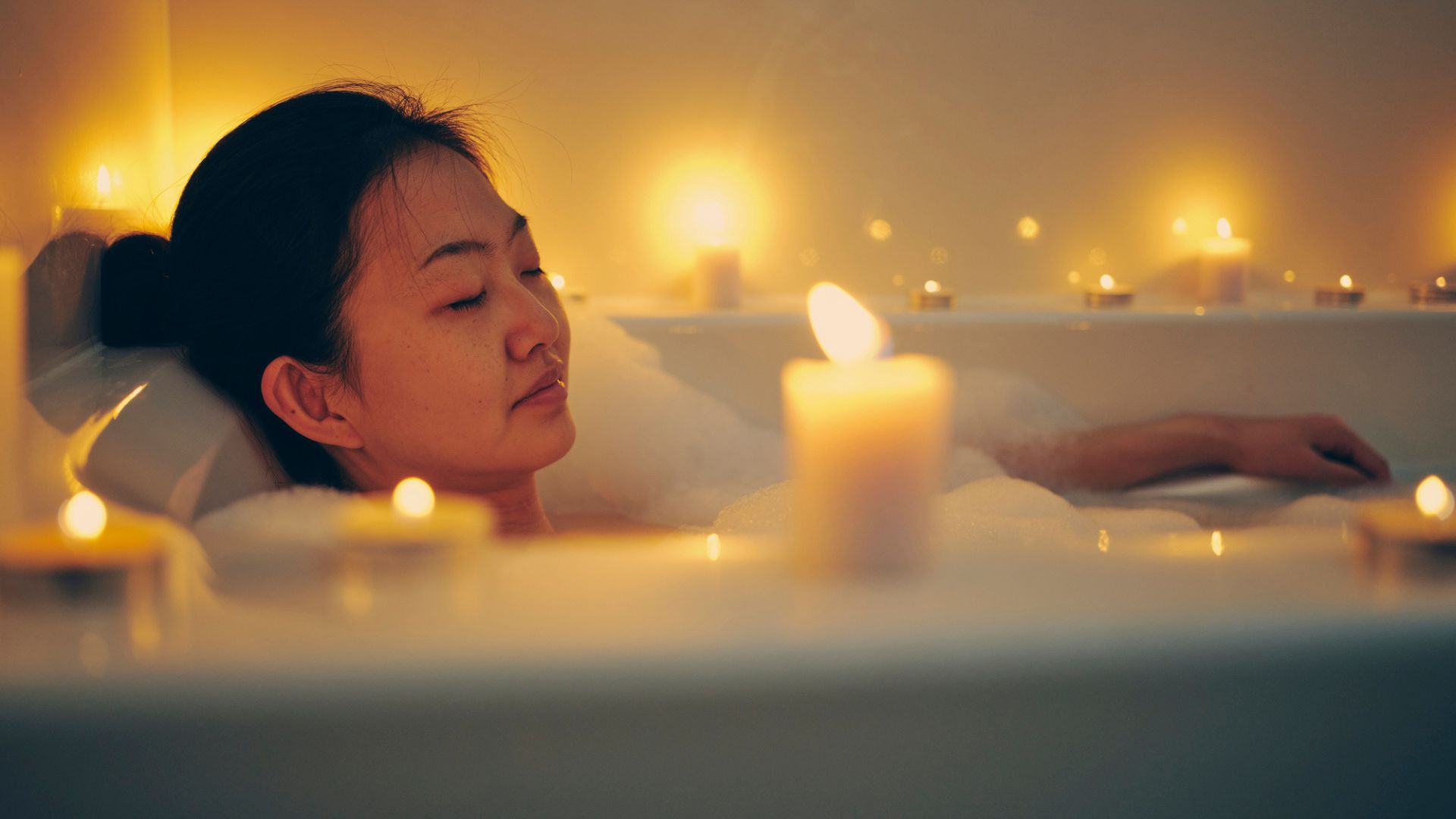
While a nice, warm bath may seem like the ultimate relaxation activity for some, Shore warns that you may want to resist picking up the bubble bath before bed.
“Anything that is going to warm up your core body temperature should be avoided," she says.
"Some people recommend gentle exercises or hot baths to help you relax, but this could warm up your core body temperature at a point when it needs to be cooler.”
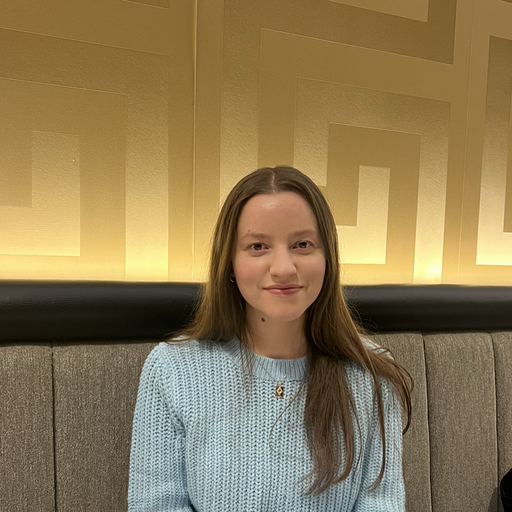
Frances Daniels is a PPA-accredited journalist and Sleep Staff Writer at Tom's Guide with an MA in Magazine Journalism from Cardiff University. Her role includes covering mattress and sleep news and writing sleep product reviews and buyer's guides, including our Best Hybrid Mattress 2025 guide. She is hugely interested in the relationship between good sleep and overall health, interviewing a wide array of mattress and sleep experts to create well-informed articles about important topics such as nutrition, sleep disorders (from sleep apnea to night terrors), lucid dreaming, sleep hygiene, and mattress care. She is also our specialist on mattress toppers — producing mattress topper reviews and taking care of our Best Mattress Toppers 2025 guide — and takes the lead on all content related to fiberglass-free mattresses for a clean, non-toxic sleep. Outside of Tom's Guide, she has written for Ideal Home, Homes & Gardens, and Marie Claire.
You must confirm your public display name before commenting
Please logout and then login again, you will then be prompted to enter your display name.
